RGW provides legal assistance to entities operating in waste management industry taking into account individual needs and existing as well as constantly changing laws.
We advise our Clients on general matters related to their business operations as well as on matters specific to this sector of the economy.
Our experience in advising entities operating in the waste management industry allows us to offer comprehensive legal assistance when applying for a permit. We represent Clients before competent authorities and administrative courts. We prepare analyses and legal opinions referring to specific problems that Clients encounter when collecting, transporting, storing, processing waste, selling or intermediating the sale of waste and after-care of disposal sites.
Our practice concentrates in particular on matters of international waste transport and related legal issues.
Areas of activity
Waste management permits
Waste collection and waste processing require a permit which is issued by way of a decision of the competent authority for the place of waste collection or processing.
The permit for waste collection and the permit for waste processing are issued after the inspection by the voivodship environmental protection inspector with the participation of a representative of the competent authority of the installation, building structure or its part or waste storage place in which waste collection or processing is to be carried out, as to the compliance with the requirements set out in environmental protection regulations. In addition, the inspection is also carried out by the poviat (municipal) commandant of the State Fire Service in the scope of meeting the requirements set out in the fire protection regulations.
After the control, both the voivodship inspector for environmental protection and the poviat (municipal) commandant of the State Fire Service issue a decision on compliance with the above requirements. The decision cannot be appealed, even in the event of a decision on not meeting the requirements which results in the refusal to issue a permit to collect waste and a permit to process waste by the competent authority.
Both the waste collection permit and the waste processing permit are issued at the request of the waste holder who must meet certain requirements. Failure to comply with these requirements is one of the reasons provided for by the legislator to refuse the permit.
Permits, as a rule, are issued for a determinate period, not longer than 10 years (exceptions in the form of shorter periods are provided for in the Waste Act).
It is not always necessary to obtain a permit for waste collection or waste processing as the Act on waste provides for certain exceptions.
RGW assists the clients with to obtain permits necessary to collect and process waste through:
- preparing legal opinions on detailed requirements related to obtaining permits in individual cases,
- clarifying doubts related to the application of the provisions of the Act on waste and executive ordinances in practice,
- representation before competent administrative authorities in the proceedings for granting the permit,
- legal representation before administrative courts.
Obligations related to waste storage
Waste storage is carried out in accordance with the requirements of environmental protection and the safe of human life and health in particular in a manner that takes into account the chemical and physical properties of the waste, including physical state and the hazards that the waste may cause.
Waste storage can only be carried out as part of the generation, collection or processing of waste in the area to which the holder of the waste has legal title.
Waste can only be stored if the need for storage results from technological or organisational processes and does not exceed the time limits justified by the use of these processes, but no longer than for a year or 3 years (depending on the specific case specified in the Waste Act).
In addition, waste storage must meet number of other criteria set out by the legislator which is why RGW provides legal assistance to entrepreneurs storing waste storage or planning to store waste through:
- preparing legal opinions on detailed requirements related to obtaining permits in individual cases,
- clarifying doubts related to the application of the provisions of the Waste Act and executive ordinances in practice,
- representation before competent administrative authorities in the proceedings for granting the permit,
- legal representation before administrative courts.
Direct and indirect sale of waste
The Waste Act defined terms ‘waste seller’ and ‘waste broker’.
A waste seller is an entity that purchases and then disposes of waste on its own behalf, including an entity that does not physically take possession of waste. A waste broker is everyone who organises waste processing on behalf of other entities, including entity that does not physically take possession of waste.
Pursuant to the Act on waste, sellers and waste brokers are subject to entry into the register kept by voivodship marshal of entities introducing products, entities introducing products in packaging, retail or wholesale entities who offer plastic shopping bags subject to the recycling fee and waste management entities.
Entry in the register should take place before the commencement of sale and brokerage of waste as only en entity entered in the register may operate in this scope.
In addition, the waste seller and the waster broker who are not waste holders are obliged to keep up to date quantitative and qualitative records of hazardous waste
RGW provides legal assistance to entrepreneurs selling or brokering waste through:
- preparing legal opinions on detailed requirements related to obtaining permits in individual cases,
- clarifying doubts related to the application of the provisions of the Act on waste and executive ordinances in practice,
- representation before competent administrative authorities in the proceedings for granting the permit,
- legal representation before administrative courts.
Transport of waste
When transporting waste, it is necessary to comply with environmental protection and safety of human life and health protection requirements, in particular in a manner that takes into account the chemical and physical properties of the waste, including physical state and hazards that may be caused by waste.
Requirements regarding the means and method of transport as well as designation of the means of transport are regulated in the Regulation of the Minister of the Environment of 7 October 2016 on detailed requirements for the transport of waste.
Issues related to transport of waste fall within the competency of voivodship marshals. It is no longer necessary to obtain a permit for the transport of waste and as of 24 July 2018, all permits issued 24 January 2018 are no longer valid.
Transport of waste
Business activity in the field of waste transport is carried out on the basis of an entry in the Register of entities introducing products, products in packaging and managing waste, which is in force since January 2018. (https://bdo.mos.gov.pl/web/).
Entry in the register of the entity concerned and ex officio in the case of entities entered in the register of regulated activities in the field of collecting municipal waste from real estate owners, is made by the voivodship marshal competent for the place of residence or registered office of the entity. In the case of waste holders who obtained other types of permits, entry in the register is made ex officio by the voivodship marshal competent or the place of business.
Transport of waste with an outdated permit or without the entry in the register is subject to an administrative fine from PLN 2,0000 up to 10,0000 (art. 195 of the Act on waste).
It is also important that drivers transporting waste have the appropriate documents confirming the type of waste transported and the details of the person/entity ordering the transport of waste and in the case of collecting municipal waste from the real estate owners – confirming the type of waste transported and the name of the municipality from which the waste is collected.
RGW advises clients i.a. in matters concerning transport of waste through:
- legal opinions on the requirements related to the transport of waste,
- clarifying doubts related to the application of the provisions in practice,
- representation before competent administrative authorities regarding the entry into the register and imposed administrative penalty.
Administrative sanctions related to waste management
The Act on waste provides for the power of the voivodship inspector for environmental protection competent for the place of waste generation or management of waste, to impose, by way of a decision, an administrative pecuniary penalty.
Administrative pecuniary penalty may be imposed for behaviours specified in the Act, such as:
- transport of waste without permit for transport or entry in the register,
- change of the classification of hazardous waste to waste other than hazardous by diluting of mixing it with each other or with other waste, substances and materials, leading to a lowering of the initial concentration of hazardous substances to a level lower than the level specified for hazardous waste,
- waste storage not in accordance with the requirements specified in the Act on waste,
- wast collection contrary to the prohibitions set out in the Act on waste.
RGW helps entrepreneurs who operate on the basis of the provisions of the Act on waste to adapt their business to these provisions.
RGW also represents entrepreneurs in proceedings before administrative bodies in matters related to imposed administrative fines as well as in administrative court proceedings.
Criminal law and the law of offences
Operating in the field of waste management carries risk related to possible criminal liability or liability for petty offences.
RGW represents clients in criminal proceedings related to offences against the environment and in proceedings in cases of offences under special acts such as the Act on Waste.
Chapter XXII of the Special Part of the Penal Code regulates offences against environment such as destruction or pollution of the environment, economic activities that endanger environment but also storage, disposal processing, recover or transport or import from abroad of waste or substances contrary to the provisions of law (art. 183 of the Penal Code).
A number of penal provisions are also in the Act on waste. The following are qualified as offences:
- violation of the manner of waste management,
- activities outside the permitted area,
- violation of transport requirements,
- unlawful fulfilment of the waste management obligation,
- unlawful handling of waste,
- unlawful collection of waste,
- management of waste contrary to information filed to the register,
- no application to be entered into the register,
- not keeping records of waste,
- failure to submit the required report,
- recovery of medical and veterinary waste with violation of law,
- mixing waste oils,
- unlawful transfer and ise of sewage sludge,
- placing waste at the bottom of the sea,
- failure to comply with obligations by the person managing the waste landfill,
- thermal waste treatment outside the incinerator.
Additional information about services rendered by RGW in penal cases, including criminal economic may be found here.







